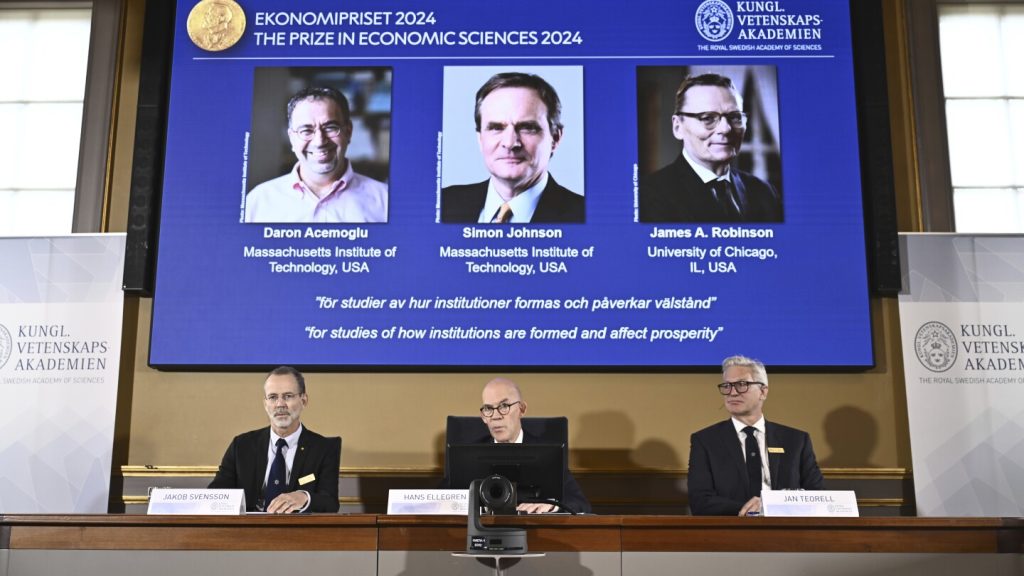The 2021 Nobel Memorial Prize in Economic Sciences was awarded to three economists – Daron Acemoglu, Simon Johnson, and James A. Robinson – for their research on the root causes of why some countries are rich while others remain poor. Their work demonstrated the importance of societal institutions for a country’s prosperity, showing that freer and more open societies are more likely to thrive. Acemoglu and Johnson, who work at the Massachusetts Institute of Technology, and Robinson, from the University of Chicago, have provided a deeper understanding of why countries fail or succeed through their analysis.
The prize-winning economists highlighted the significance of democratic institutions in promoting prosperity but also acknowledged the challenges in introducing democracy, which can sometimes lead to conflict. They emphasized the role of inclusive societies in driving economic development, pointing out examples like the United States, South Korea, Taiwan, and Mauritius, which have successfully transitioned to inclusive systems. They also warned against the sustainability of economic prosperity in repressive political systems like China, citing historical examples such as the Soviet Union.
The economists’ research, particularly their book “Why Nations Fail: The Origins of Power, Prosperity, and Poverty,” examines how man-made problems contribute to keeping countries impoverished. They analyzed cases like the city of Nogales, which straddles the U.S.-Mexico border, to illustrate how factors like property rights and government participation can significantly impact quality of life and economic outcomes for residents. The award recipients expressed concerns about declining support for democracy in Western nations like the U.S., Greece, and the UK, emphasizing the need to address disillusionment with democratic systems.
Amid growing economic pressures and societal changes, the economists emphasized the importance of managing new technologies like artificial intelligence to prevent exacerbating income inequality and social disparities. They highlighted the need to empower individuals with education and skills to adapt to technological advancements, rather than relegating them to lower-paying jobs through automation. The economists’ analysis focused on colonial legacies and how different policies established by European powers shaped economic institutions around the world, leading to present-day disparities in prosperity.
While the economics prize is not technically a Nobel Prize, it is presented alongside the other Nobel Prizes on December 10th, the anniversary of Alfred Nobel’s death. The prize was established in 1968 by the central bank of Sweden to honor Nobel’s legacy. The award recognizes groundbreaking research in the field of economics and contributes to a better understanding of global economic challenges and opportunities. The work of Acemoglu, Johnson, and Robinson sheds light on the complex interplay between institutions, politics, and economic development, offering valuable insights for policymakers, economists, and the general public.


